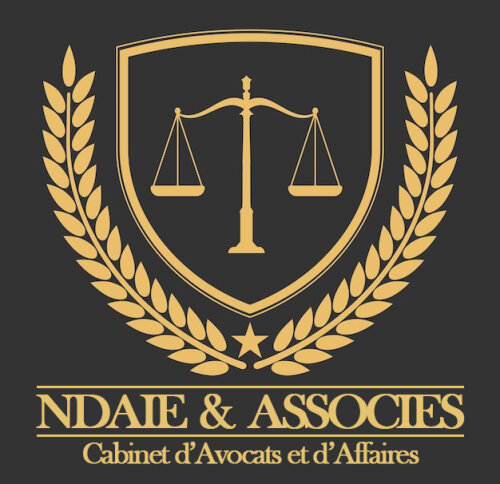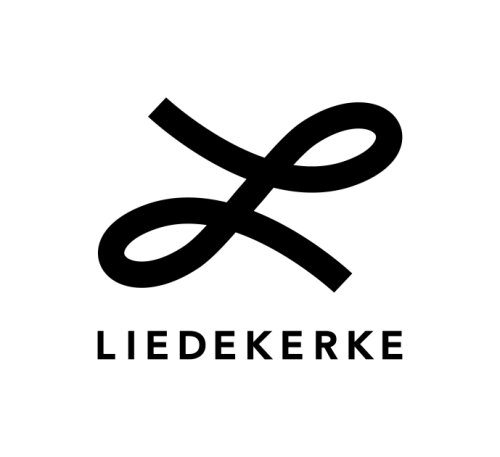Best Project Finance Lawyers in DR Congo
Share your needs with us, get contacted by law firms.
Free. Takes 2 min.
Or refine your search by selecting a city:
List of the best lawyers in DR Congo
About Project Finance Law in DR Congo
Project finance is a specialized legal and financial framework used to fund infrastructure and industrial projects based primarily on the projected cash flows of the project rather than the balance sheets of the project sponsors. In the Democratic Republic of Congo (DR Congo), project finance plays a critical role in sectors like mining, energy, transportation, telecommunications, and public infrastructure. The country’s vast natural resources and development needs have led to several high-value and complex projects requiring robust project finance structures. Legal frameworks in DR Congo seek to protect the interests of investors, lenders, and the government, focusing on matters such as foreign investment, project security, and risk allocation.
Why You May Need a Lawyer
The project finance process in DR Congo is complex and involves detailed legal structuring, contractual arrangements, and regulatory compliance. Here are some common situations where legal assistance is essential:
- Drafting, reviewing, or negotiating project contracts and financing agreements
- Securing permits, licenses, and government approvals required for project development
- Conducting due diligence on land rights, regulatory compliance, and counterparties
- Structuring cross-border financing arrangements and ensuring compliance with currency and foreign investment regulations
- Advising on security interests, mortgage registration, and collateralization
- Managing stakeholder relationships with public authorities, local communities, and joint venture partners
- Resolving disputes or renegotiating project terms due to unforeseen circumstances
- Advising on taxation, customs, and import-export regulations related to project asset procurement
Local Laws Overview
Project finance in DR Congo is governed by a combination of national laws, sector-specific regulations, and, in some cases, international treaties and principles. Some key aspects include:
- The OHADA (Organisation for the Harmonization of Business Law in Africa) Uniform Act, which sets out the legal framework for commercial law, including security interests and insolvency
- Investment laws such as the Investment Code that provide incentives and guarantees for foreign and local investors
- The Mining Code and Petroleum Code, which regulate sector-specific projects and the acquisition of mining, oil, or gas rights
- Requirements for environmental and social impact assessments for certain project types
- Strict rules related to the acquisition and registration of land and property rights
- Banking and foreign exchange regulations set by the Central Bank of Congo, especially for cross-border financing and repatriation of funds
- No specific PPP (Public-Private Partnership) law, but certain enabling provisions exist to facilitate partnership structures, usually requiring negotiating with the relevant ministry or authority
- Contract law principles aligned with OHADA and enforced by local courts or, in some cases, international arbitration
- Licensing and project approval processes across different ministries and agencies, which may vary by sector
Frequently Asked Questions
What is project finance and how does it differ from traditional corporate finance?
Project finance is a method of funding projects using the project's own cash flow and assets as collateral, rather than relying on the borrower's overall balance sheet. It often involves a special purpose vehicle to ring-fence the project's assets and liabilities.
Are there any restrictions on foreign investors participating in project finance in DR Congo?
Foreign investors are generally welcome, particularly in infrastructure and resource sectors. However, they must comply with sector-specific laws, foreign investment regulations, currency controls, and, in some cases, minimum local participation requirements.
What are the main risks involved in project finance in DR Congo?
Key risks include political and regulatory risk, land acquisition and title risk, currency exchange risk, security risk, and risks of contractual default or dispute.
What kind of security can lenders take over project assets?
Lenders can typically take mortgages over land, pledges over movable property, assignments of receivables, and bank account charges, in accordance with OHADA standards and local laws.
Is it possible to use international law or arbitration for project finance agreements?
Yes, parties often choose international arbitration or foreign law (such as English law) for major project finance transactions, especially when foreign investors or multinational lenders are involved. However, some agreements must comply with Congolese public policy and mandatory laws.
How are disputes resolved in project finance deals in DR Congo?
Disputes can be resolved in Congolese courts or through international arbitration, depending on what parties have agreed in their contracts. Arbitration is common where international investors or lenders are involved.
Are government guarantees available for project finance?
Government guarantees are sometimes available, especially for strategic infrastructure projects. These are usually negotiated directly with the government and formalized through agreements or legislation.
What permits or authorizations are required for project finance transactions?
Permits and authorizations depend on the sector and project scope. Typically, investors need business licenses, sector-specific permits (such as mining or energy licenses), environmental clearances, and approval for land use or concessions.
Are there specific tax incentives for project finance investments in DR Congo?
The Investment Code provides for various tax incentives, including exemptions or reductions on customs duties and taxes, depending on the project’s location and sector. Some tax holidays are available for qualifying strategic projects.
How long does it usually take to close a project finance transaction?
Timelines vary significantly depending on the complexity, sector, and parties involved. Realistically, it can take several months to a year or more to finalize all agreements, fulfill regulatory requirements, and reach financial close.
Additional Resources
For more information and support on project finance matters in DR Congo, the following resources can be helpful:
- Ministry of National Economy - responsible for investment policies and approvals
- Central Bank of Congo - oversees currency controls and foreign investment flows
- Ministry of Mines - key authority for mining sector projects and permits
- Agency for the Promotion of Investments in DR Congo (ANAPI) - provides guidance to investors and facilitates project implementation
- OHADA National Commission - for business law and dispute resolution matters
- Local and international law firms specializing in project finance and cross-border transactions
- Multilateral development banks and export credit agencies, which often participate in project finance deals
Next Steps
If you are considering starting or investing in a project finance transaction in DR Congo, or if you are facing legal challenges related to an existing project, here is how you can proceed:
- Identify the specific sector and nature of your project, and gather relevant documentation
- Research and shortlist qualified lawyers or law firms with proven experience in project finance in DR Congo
- Prepare a list of your legal questions or concerns for your initial consultation
- Arrange for a comprehensive legal review of your project documentation and any contracts or agreements
- Engage legal counsel to guide you through regulatory approvals, negotiations, and the transaction closing process
- Consider ongoing legal support for contract management, compliance, and dispute resolution during the project’s lifecycle
- Stay updated on relevant legal and regulatory changes that may affect your project or investment
Taking these steps with the support of a knowledgeable legal advisor will help ensure your project’s success and protect your interests in DR Congo’s dynamic project finance environment.
Lawzana helps you find the best lawyers and law firms in DR Congo through a curated and pre-screened list of qualified legal professionals. Our platform offers rankings and detailed profiles of attorneys and law firms, allowing you to compare based on practice areas, including Project Finance, experience, and client feedback.
Each profile includes a description of the firm's areas of practice, client reviews, team members and partners, year of establishment, spoken languages, office locations, contact information, social media presence, and any published articles or resources. Most firms on our platform speak English and are experienced in both local and international legal matters.
Get a quote from top-rated law firms in DR Congo — quickly, securely, and without unnecessary hassle.
Disclaimer:
The information provided on this page is for general informational purposes only and does not constitute legal advice. While we strive to ensure the accuracy and relevance of the content, legal information may change over time, and interpretations of the law can vary. You should always consult with a qualified legal professional for advice specific to your situation.
We disclaim all liability for actions taken or not taken based on the content of this page. If you believe any information is incorrect or outdated, please contact us, and we will review and update it where appropriate.
Browse project finance law firms by city in DR Congo
Refine your search by selecting a city.















